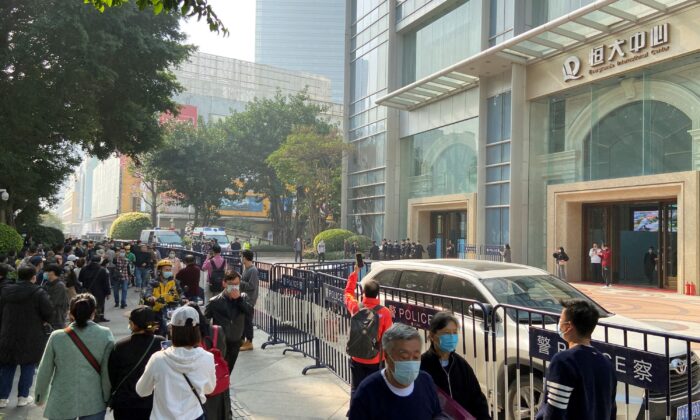A U.S.-based nonprofit human rights watch group recorded 805 dissent incidents in China from April to June in its latest report, published on Aug. 28. It’s an increase of 18 percent from the same period in 2023, despite the Chinese regime’s tight control.
The majority of the incidents recorded by Freedom House’s China Dissent Monitor (CDM) in the 370 provincial cities in China were related to labor issues (44 percent) and homeowners’ protests (21 percent).
The region with the most protests was Guangdong Province (13 percent), followed by Shandong, Hebei, Henan, and Zhejiang. Among cities nationwide, Shenzhen, Xi’an, and Sanya had more protests over economic issues. Several other cities that have a high percentage of protests are located in Guangdong Province.
Two Chinese real estate companies ranked as the top two in property-related protests: 106 incidents involved Country Garden, a property development company based in Guangdong that has been in a default crisis since 2023, while 71 incidents were related to Evergrande, a major Chinese property development company based in Shenzhen that has been in a liquidation crisis since 2020 and defaulted in 2023.
These protests are because people’s livelihoods have been seriously affected by unfinished real estate projects, sudden workplace closures, and inability to pay wages, according to the report.
China’s economy is entering stagnation after four decades of development despite Beijing’s intervention measures, as it can’t solve the major issues that are hindering economic growth, including the real estate crisis, a trade war with the United States, the regime’s clampdown on the private sector, and the long-term negative effects of its draconian COVID-19 lockdowns and restrictions.
CDM also recorded protests in rural areas related to forced evictions and land expropriation, as well as protests involving taxi drivers in cities over soaring fees by taxi companies, among others.Many of the protests were suppressed by the Chinese Communist Party (CCP), as authorities fear that “the protests could lead to greater political risks,” the report states.
China observers say the increase of protests in China despite the CCP’s tight control of society shows that the CCP is facing a legitimacy crisis.

Tseng Chien-Yuan, chairman of the board of New School for Democracy, told The Epoch Times that the current situation in China is unlike anywhere else, as even the middle class, including property owners, have stood up to protest, which shows that China’s economic situation is very serious.
“People are forced to live in poverty, and the legitimacy of the CCP’s rule, which is built on economic development, is greatly weakened,” he said. “Under strict surveillance, people still come out to protest, which is a warning sign of a major crisis.”
Wu Se-Chih, a researcher at Cross-Strait Policy Association in Taiwan, told The Epoch Times, “Generally speaking, social protests occur when people’s forbearance has reached its limit.”
He said the real number of the protests is much larger than what the CDM was able to collect because of the CCP’s control and its censorship.
Freedom House acknowledged the media restrictions in communist China and the “risks associated with collecting information from within the country about dissent and protest” in the report.
CDM “was created in response to the information gap” through data collected from “news reports, civil society organizations, and PRC-based social media,” as well as other sources.
Wu said that the CCP always suppresses protests and blocks information from reaching the public and outside world and also “used other methods to ease the backlash from the people or society.”
“But the CCP now has fewer and fewer means that it can use, especially as it’s facing serious financial problems,” he said.
Wu said when Chinese society as a whole falls into economic despair, it will be more difficult for the CCP to control the power of the people to counter its regime.
“In the end, the CCP will collapse due to the social unrest,” he said.
Luo Ya contributed to this report.

